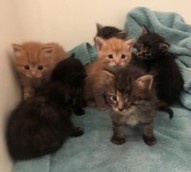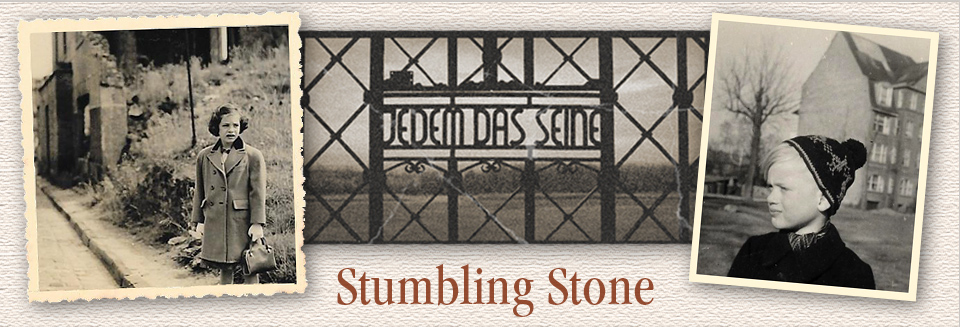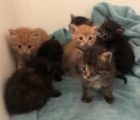Kids and Covid: How are they doing?
By Julie Freestone and Rudi Raab
Because it’s graduation time, a lot of the media are focusing on kids and COVID. They are looking at how weird graduation is for college and high school seniors. How odd it’s going to be in the fall when there may be online learning and drastically altered collegiate experiences. Of course we don’t have any children in our home who are in those categories, but we do have some young people in our lives and we’ve been thinking about how the pandemic and shelter-in-place might impact them long term— and immediately so we decided to ask them and their parents.
Baby Andrew and the garbage truck

Geoff, a Canadian native, is teaching his son Andrew to play hockey
Almost two years ago, baby Andrew (and his parents) moved into the house down the street. We didn’t’ see much of them; both parents worked. We’ve been seeing him and his mom and dad a lot more now that we’re all sheltering-in-place. He’s walking and talking now, of course and we wondered how things are going for him with no kids his own age to play with. Here’s the report from his mother:
“While we are enjoying the extra time with Andrew, sheltering-in-place with a two-year old and working full time is full of challenges. These days Andrew is definitely watching more Sesame Street than normal. We also try to spend as much time as we can outdoors: walks around the block, playing hockey, kicking a soccer ball in the backyard, swinging in the toddler swing. Recently we purchased a new sticker book — that has been a big hit. Andrew’s other favorite past time is looking for garbage trucks (Thursdays on our street and Mondays a block over). Our next tactic is to try potty training. Wish us luck — we’re going to need it! “ Julie told them that her baby sitter toilet trained her son. No option for that during shelter-in-place.
Some families are lucky
We’ve talked about our Facetime cooking sessions with our Nevada surrogate grandchildren Lizzy, who just turned 13, and Scotty, just 11, and their mom Kristen, a pre-school special needs teacher. Their grandma, our friend Janet, who is a retired elementary school teacher, says she thinks a lot of how COVID will affect children depends on the parents and how they handle the strange world their kids are in.

Kristen and her kids found 7 abandoned kittens on their patio
Kristen says she and her kids have had a “fabulous” time. “We have COVID cooking and COVID kittens (they found seven kittens on their patio and are fostering them)”. Our granddaughter in Ohio says she’s had a wonderful time with her parents during the lockdown and doesn’t even miss her friends.
Lizzy analyzes the situation from her own point of view— and others. “I feel like our family is really lucky. Mom can work from home. Other kids stay with a relative or staying alone. It can have an impact on their education, their relationship with family.” (Honest, she said this. Her words)
As an example, Lizzy and Kristen talked about Lizzy’s friend Suzanne (not her real name). She has no siblings and lives with her dad who works two days a week. That sounds lonely and it probably is but Kristen asked her how things were going – knowing their relationship was rocky ever since her dad gained custody of her. “They have arguments, but they are a lot closer and they’ve gotten to know each other in different ways. They are doing better now than before COVID,” Kristen said.
Long distance learning
Lizzy is pretty indignant about long-distance learning, even though she doesn’t miss middle school. “I can’t see my teachers; I can ask questions on the internet and email but it’s not the same as them explaining it in class, I’m usually asking my math teacher questions 24/7. I have perfect quizzes. But they are getting harder for me because I have to pay twice as much attention to the materials.” Her mom points out there are 140 kids on the Zoom call with the math teacher, not ideal.
And Lizzy says it’s even harder for other kids who aren’t as committed as she is or don’t have supportive home situations. “At my age, I should be able to talk to my teacher; Scotty should be able to talk to his teacher and work it out together. We are still young. Imagine the first and second graders,” she said.
Scotty loves it
On the other hand, Scotty seems delighted with the shelter-in-place. “ I love it,” he said frankly. “I don’t usually have any questions for my teachers. I follow the directions; I think about it, I understand it and I get all my work done. I have my own schedule, can take breaks when I want to.”
His grandmother says she thinks he’d love to be home schooled all the time but he knows this won’t last forever, even though he’s predicting they won’t go back to school until October. And going back worries him because next year will be his first year in middle school. “I’m in elementary school, my last year there. When I get back from COVID, I’ll be in a whole new school and I won’t have met the teachers; you usually get a tour. Since COVID, we haven’t been able to do it.”
Sleeping in and other pros and cons
Our neighbors Sue and Larry visited his son and family recently and asked them how they are doing. Sage, about to turn 13, said she misses travel, classes and interaction with her teachers and shopping for food. She likes sleeping in and doing more baking. And seeing her mother in the morning. Before the shelter in place, her mother left first every day. Her 15-year old brother Basil doesn’t like online learning either. He misses hanging out with his friends, water polo, and the shortened salmon season. He also likes sleeping in.
Preschoolers with special needs
Kristen thinks kids are so resilient and will probably not be scarred. “This is the life they know.” But her pre-school charges are another story. Her goal with them normally is to teach them socialization and that’s not possible now and won’t be using CDC guidelines that prohibit sharing toys and requiring children over two years to wear masks. “I can’t even get them to keep their clothes on; if we go back, there’s noting I can do to make it safe except wear a tent.”
In spite of that, she says there are a lot of benefits to distance learning and she just had four days of training on how to teach from home. “No one feels confident we’re going back in the fall.” Kristen says with better strategies, staggering the kids, using distance learning part of the time, it will happen but in the end, Kristen says, “I think it’s harder for the kids to get the kind of education I want my kids to have. Teachers are amazing and it’s hard to make that connection on line.”
Looking down the road and her kids aren’t ready yet, she’s says they might even be rethinking college. “Maybe Lizzy and Scotty will be looking at a different kind of college experience with remote learning, not living in a dorm.
The older kids
For some young people, that college experience is not far down the road. Our friend Andrea shared with us how her family is dealing with the shelter-in-place, including high school graduation for her oldest son. “Langston (17) doesn’t really want to do anything to celebrate his graduation . He’s very happy with going to Stanford, and he’s accepting of the gap year, and just bummed that he can’t have a normal start to a Freshman Fall in ’20 but he would not want to start online, or whatever it will be (hybrid? social distanced?).
I think it’s hard to re-create the excitement of graduating with friends and going to celebrate at someone’s house after grad from parents and sibling who you’ve been with for two months, so we won’t try to do that. Langston is going to be waiting it out for the next 15 or so months – what’s he to do? Take some online community college classes and volunteer where he can. Maybe get a job but then does he expose himself and us to the virus, if he’s working in Trader Joes or something? He applied for a COVID Disease Intervention Technician job (at the county health department) but I doubt he’ll get it because he has no real work experience.”
Andrea, who is a social worker and supervises students at UC Berkeley, says, “I think it is going to have a big effect on lots of aspects of our lives for a long time to come…I am worried for Gideon (her other son, age 15) as a junior in HS next year. Online education is not great for him. I could see this going on for a good part of the next academic year.
She thinks colleges will have to adjust their admissions standards and figure out new ways of evaluating students. Extracurricular activities need to be re-assessed on importance if they can’t happen in an online format. “Who knows about the SAT/ACT (which Gideon should start prepping for)? Gideon needs to take his learner’s permit to learn how to drive for his license but the DMV are all closed for that. I could go on and on.”
Andrea says it makes her very glad that she had the travel experiences with the boys. “They know what NYC, Chicago, Boston, LA, and New Orleans felt like before this. They experienced Paris, Rome, Venice, London, Barcelona, Mexico City and Oaxaca. They’ve been to the Grand Canyon. There are lots of things that we still wanted to do that we can’t do with them right now, but I’m very grateful, even more so now, for the trips we’ve taken, etc.”
If you want to read what the experts are saying, here are two of the many options: The Human Rights Watch issued a report about the world wide impact of the pandemic on children. And our friend Janet called our attention to an issue in Time devoted to the same topic.
Rudi Raab and Julie Freestone wrote Stumbling Stone, a novel based on their true life experiences. Rudi was educated in Germany but got his three degrees in the U.S. Julie went to 14 different schools starting with kindergarten in the Bronx, before she earned her Masters degree.

